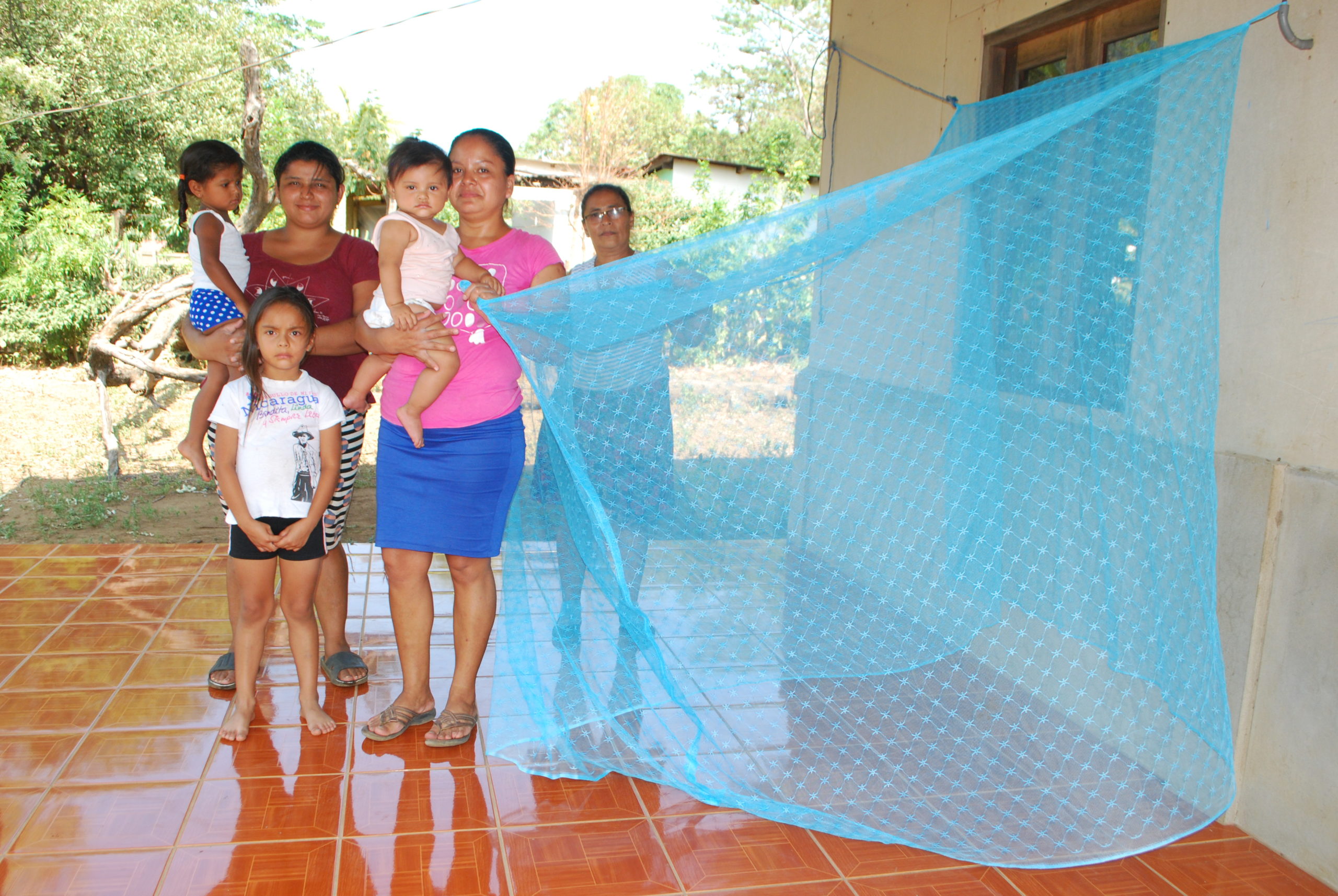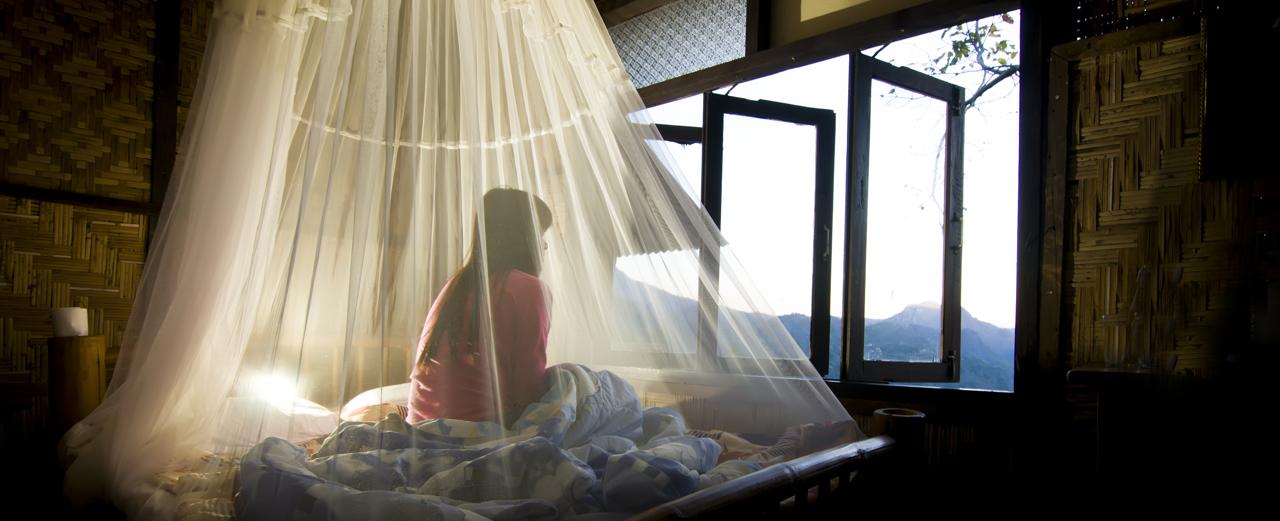 A net for people – a barrier for mosquitos
A net for people – a barrier for mosquitos
Preventing infectious diseases
If you look up Dengue in a medical book, you will usually find only a short paragraph about it. In Nicaragua, on the other hand, the disease is known throughout the country and is part of everyday life for many people. Dengue is transmitted by mosquitoes, just like malaria or zika. In the case of dengue, it is the aedes mosquito. The disease begins like a flu with high fever as well as headache and aches in the limbs. It can also cause nausea, vomiting and rashes. The symptoms usually subside after two to seven days. However, there are also cases of serious illness that can be fatal and therefore need to be treated in hospital. So far, just like for the coronavirus, there is no vaccination or drug against dengue. Prevention is therefore the best protection. To this end, the health authorities in Nicaragua use insecticides on a large scale. It can seem alarming when you see it for the first time: A jeep drives through the streets and sprays insecticide from large nozzles. A more environmentally friendly measure to prevent mosquito bites are mosquito nets. However, these are too expensive for many households.
Necessity
Mosquito nets and medical supplies for the rural population in Nicaragua.
Activity
The local NGO CEDRU buys mosquito nets for the population and medical supplies for health centres.
Countable effort
Number of mosquito nets distributed and families benefiting from the intervention.
Result
Infections transmitted by mosquitoes decline significantly. Medical care improves.
Systemic effect
The living conditions of the rural population in terms of health improve long-term. Deaths from malaria and dengue decrease.
Background
Diseases transmitted by mosquitoes such as malaria, dengue, yellow fever or zika are common in most tropical countries and pose a significant health risk to the population. The World Health Organisation (WHO) considers mosquitoes to be one of the deadliest animals worldwide: The diseases they transmit kill up to 700,000 people every year (WHO, 2020). In Nicaragua, a sharp increase in malaria and dengue infections has been observed in recent years. With almost 11,000 confirmed cases in 2017, the infection rate of malaria rose by 20 per cent (WHO, 2017). With regard to the spread of dengue, the WHO data is even more worrying: In 2019, 186,173 cases of dengue were registered, three times as many as in the previous year (approx. 60,000 cases). This means that Nicaragua has the third highest infection rate in Latin America (WHO, 2019). The rising rates of infection illustrate the importance of counteracting the spread of these diseases with targeted measures. In addition to public education about the origin, spread and symptoms of the diseases, this includes above all preventive protection by means of mosquito nets. However, due to inadequate infrastructure and limited public health funding, these measures cannot be implemented across the board, especially in rural areas.
The good deed
Your donation today makes it possible to provide the rural population in Nicaragua with mosquito nets. This way, people can protect themselves from the mosquitoes with nets and help to reduce the spread of tropical diseases such as malaria, dengue, chikungunya and zika. The health centres will also receive basic medical equipment such as thermometers, blood pressure gauges, syringes, face masks and gowns. The improved equipment facilitates correct diagnosis and adequate treatment, also with regard to other communicable diseases such as Covid-19. Reliable health care and the prevention of tropical diseases will contribute to a long-term improvement in the living conditions of the rural population.

AboutNicaragua
Managua
6,545,500
US$ 4,790
Placed 126th out of 189
Nicaragua is a country of lakes and volcanoes. Lake Nicaragua is the largest lake in Central America. There are 19 volcanoes, some of which are still active.
About the organization and further information
San Rafael del Sur Association





